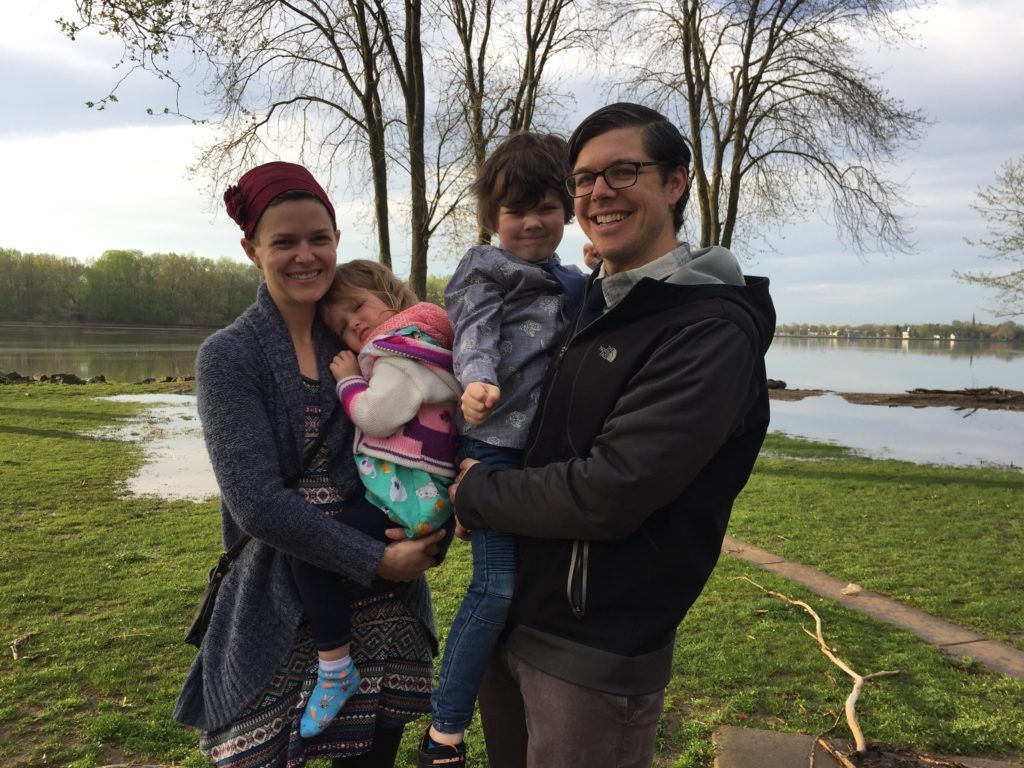
Gary Alloway serves as the Pastor and Director of Mission for Redemption Church in Bristol, PA. Gary is an alumnus of Penn State and Princeton Theological Seminary. He is passionate about seeing the healing love of Christ spread throughout the world. He also loves indie rock, startup businesses, community ventures, and his family.
We recently had a chance to ask him a few questions!
How would you describe the area your church is in?
A post-industrial suburban small town.
How would you describe the journey of pastoring Redemption Church? What have been some of the milestones/different seasons?
When we first started, we were young, immature, and ambitious. 3 years in, we re-booted, spending the next 6 years in a house church model, which helped us develop depth, a culture of discipleship, patience, and a willingness to invest in small things, rather than try to conquer the world. House churches forced us to focus on relationships, both inside and outside the church. We re-launched our weekly gathering this past year with a whole network of local relationships to invite in, rather than just a good idea for a new ministry in Bristol.
Looking back, what do you know now you wish you had known when you first started Redemption?
I wish I had known how slow things would go. We planted in a dying post-industrial town and expected to see growth and change right away. If I had had a more realistic expectation for the pace of change, I would not have been as discouraged in the early years and would have spent more time rejoicing over the little victories along the way.
As you think about what you’ve been able to do so far in ministry there what are some things you have done/tried that have worked well?
Community partnerships. As a small church with a small budget, there are limitations on what we can do on our own. However, when we have partnered with both individuals and community organizations, we have been able to accomplish things far beyond our scope. We have helped launch a housing non-profit, a coffee shop, and a community festival. We have worked with local businesses to host Bible studies, storytelling nights, and discussion groups. Our resources and possibilities grow tremendously when we work with others rather than only within ourselves.
What hasn’t worked so well? What have you had to rethink/reimagine/rework?
One mistake was thinking that there would be dozens of people in Bristol who were excited about a new church. In our post-industrial, post-Christendom setting, nobody was excited that we showed up. People were interested in who we were and what kind of neighbors we would be, but not what we were offering on Sundays. It has forced us to think about how we do Monday through Saturday well, not just think about Monday through Saturday as a means to enlarge Sunday.
What is something you’ve been hearing from or learning from God in this last season of leading?
God continues to bring me back to the truth that it is all about discipleship. We can build a big church, but all that really matters to God is whether we are being shaped and formed to be like Christ. This the reason we exist. And if we invest in this, whether the church grows large or dies, we will be successful.
What do you dream/hope/pray Redemption looks like in five years?
I hope and pray that our church community is even more enmeshed in the life of Bristol. That we would be the salt and light not only on our main street, but in every neighborhood, on every street, in our schools, etc. I pray that even if we grow large, we wouldn’t lose sight of the fact that individuals matter to God. That we would love our neighbor, not as a concept, but instead, actually love our particular neighbor.







